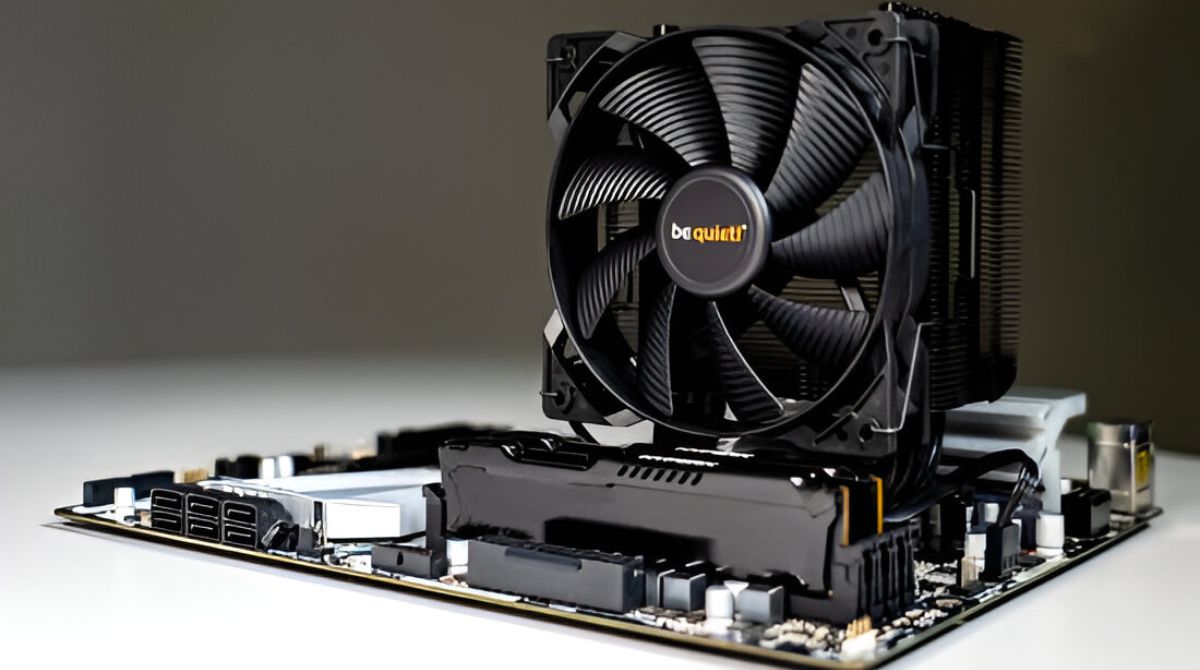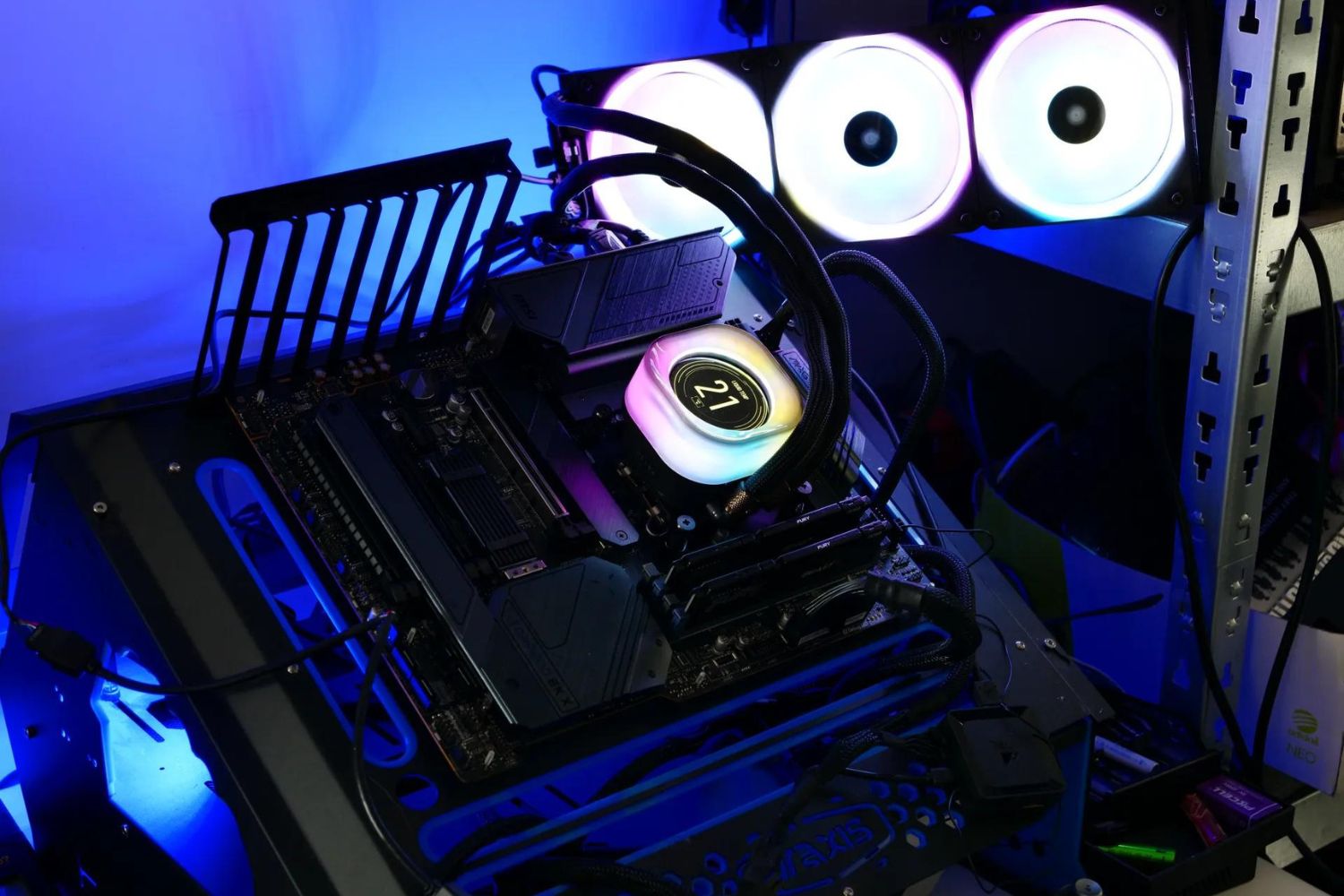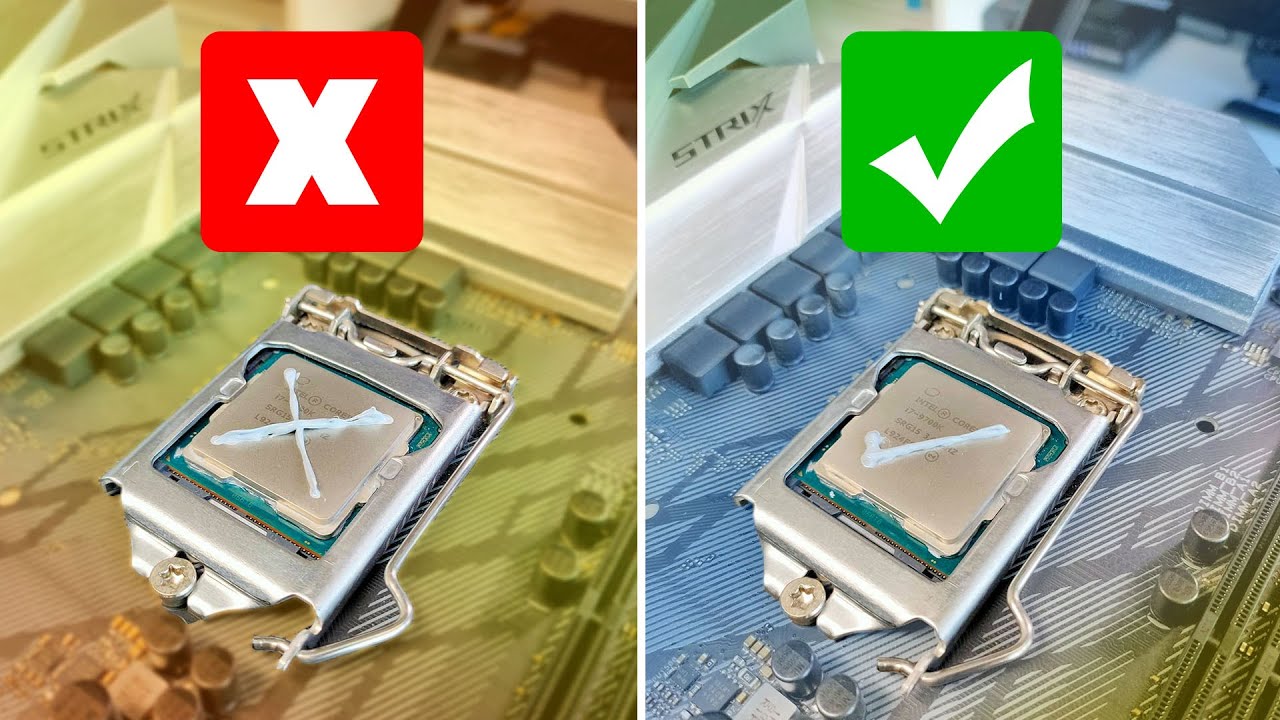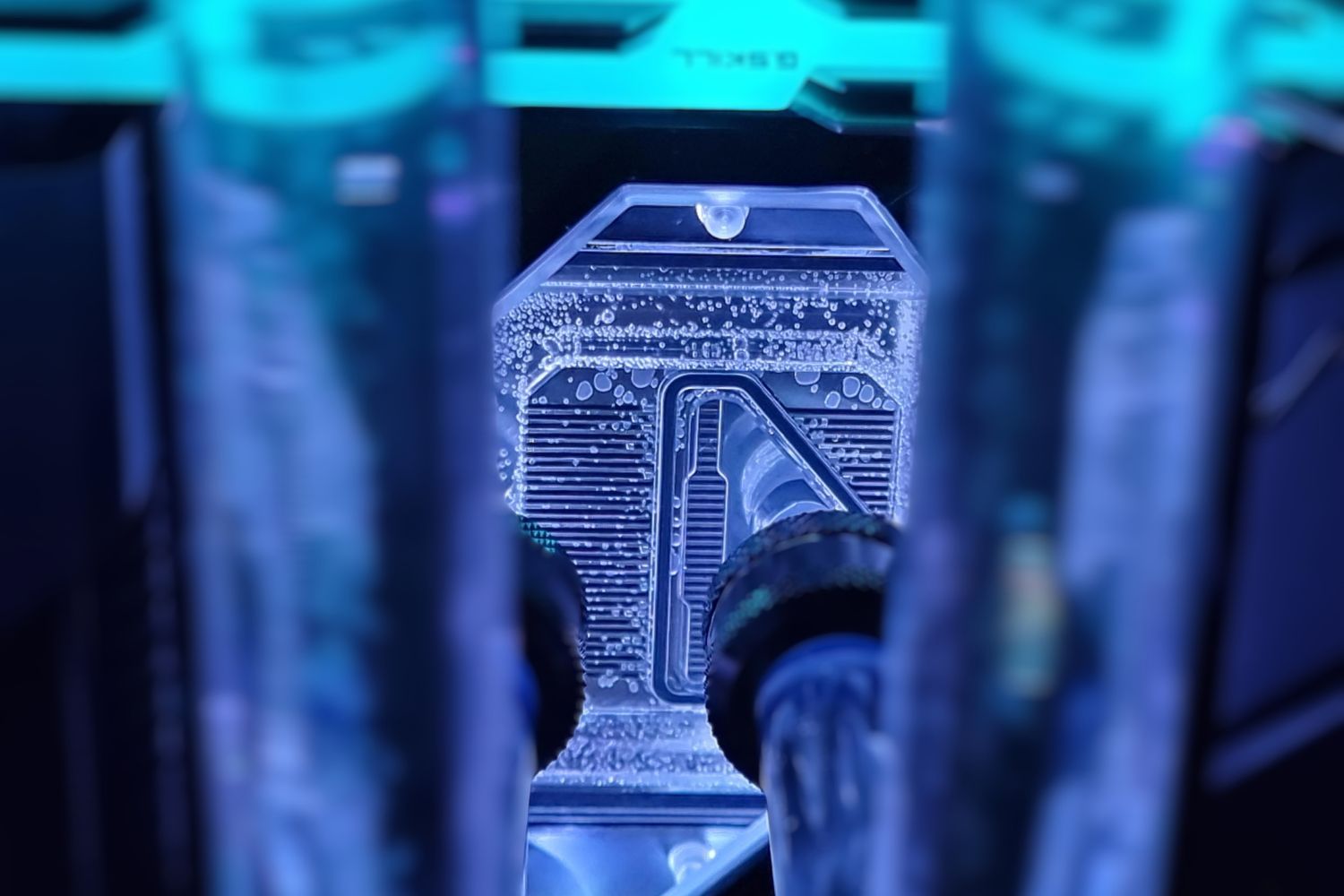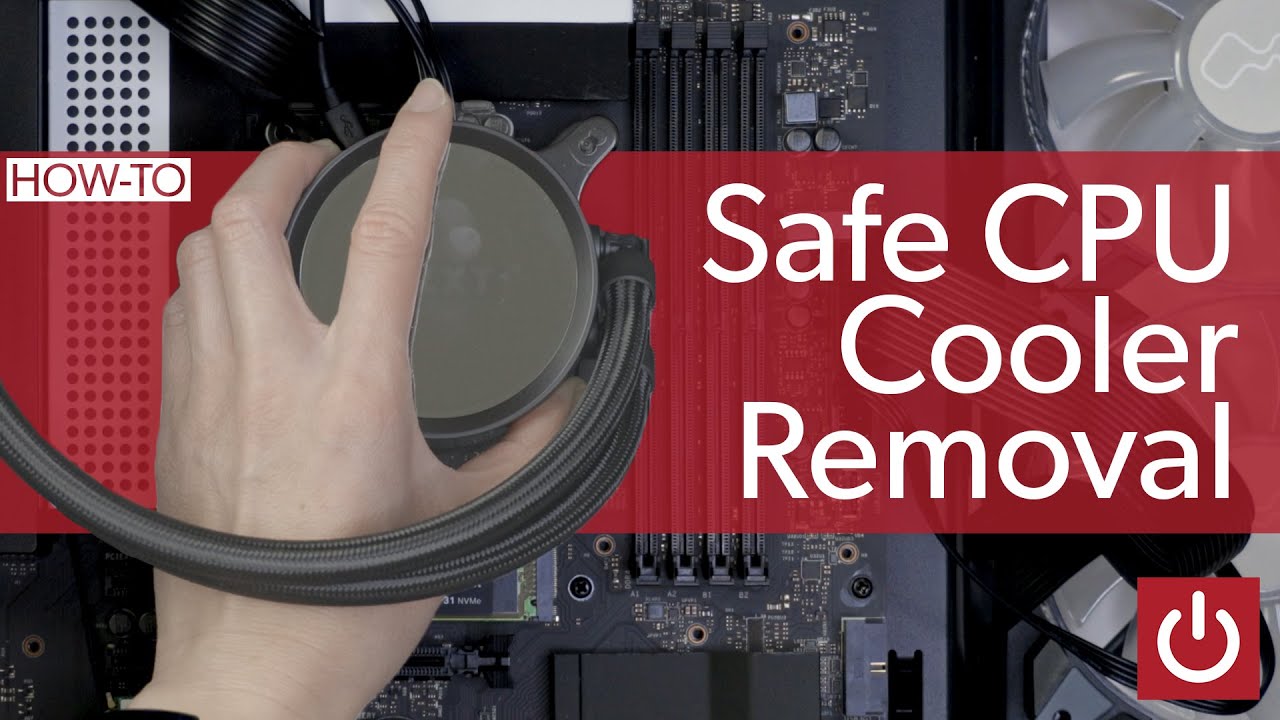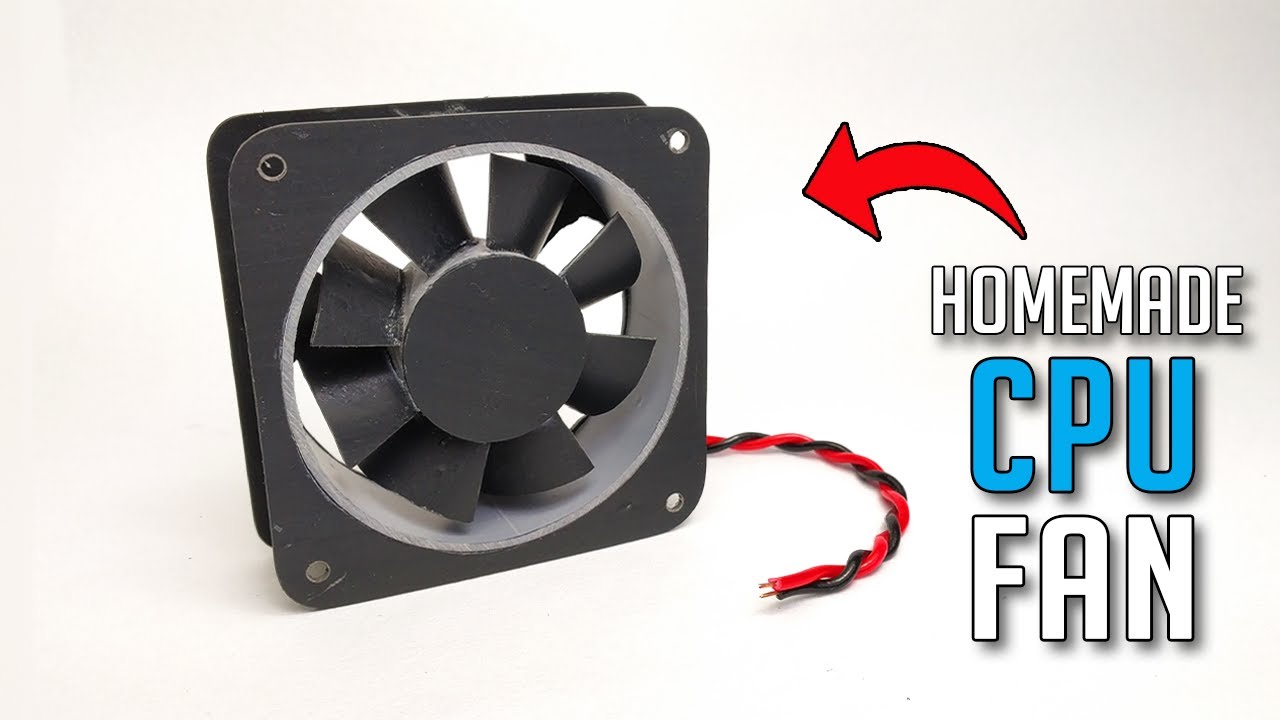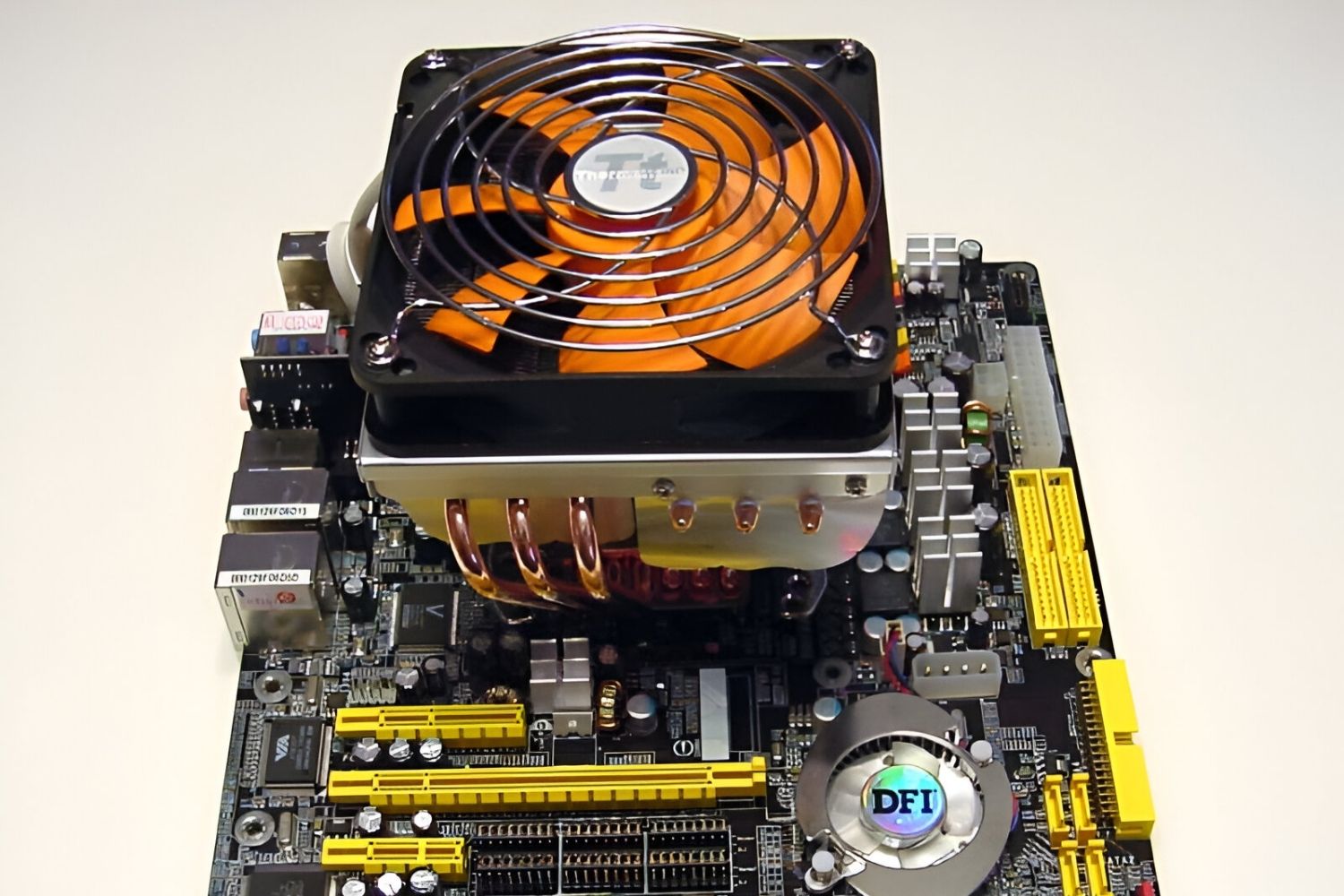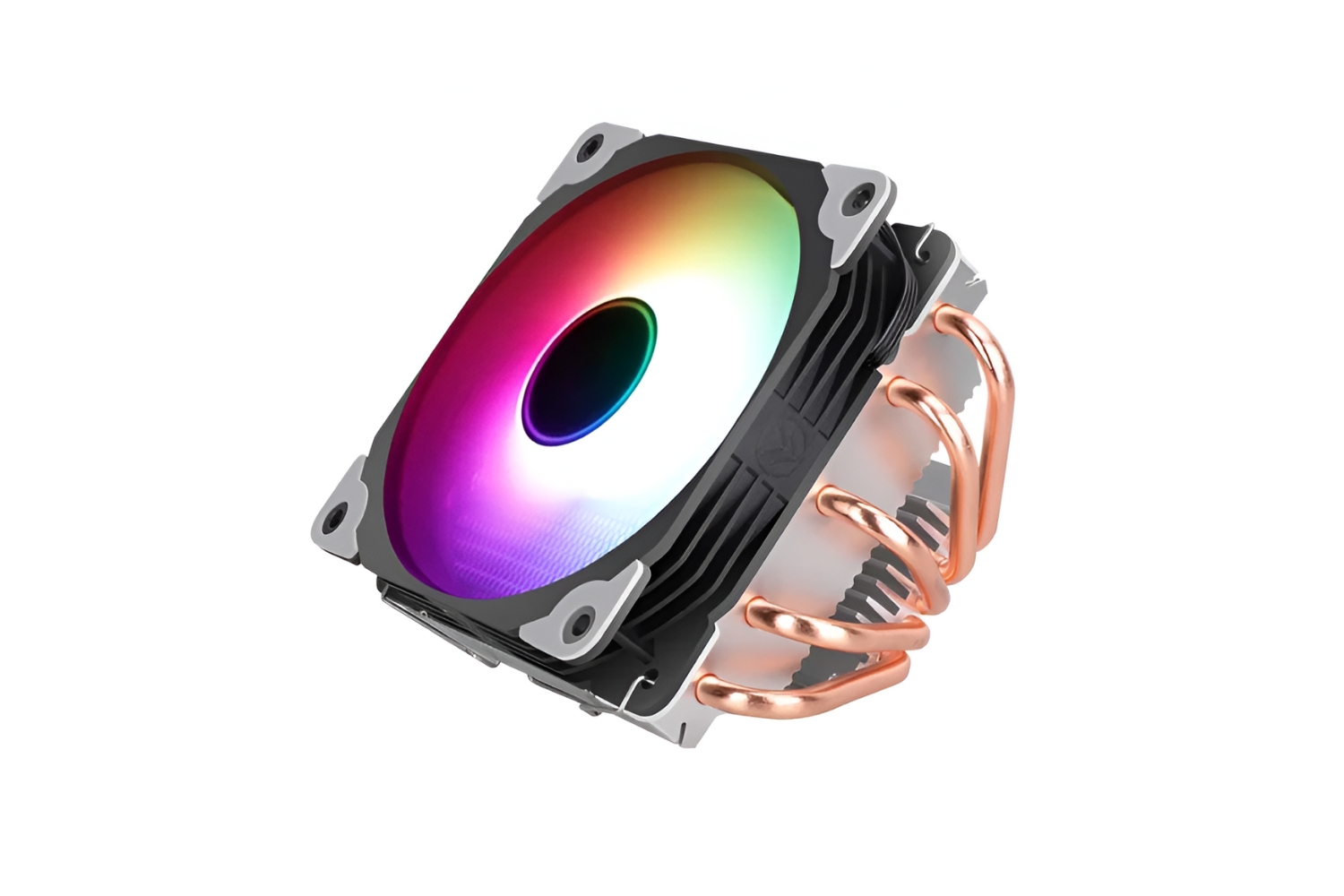Introduction
Welcome to the world of CPU coolers, where the battle to keep your processor running cool and efficient is fought. The CPU cooler plays a crucial role in maintaining optimal temperatures and preventing overheating, which can lead to performance issues and even hardware damage. Whether you are a gamer, content creator, or simply a PC enthusiast, choosing the right CPU cooler is essential for the longevity and performance of your computer.
When it comes to CPU coolers, there are two main types: air coolers and liquid coolers. Air coolers are made up of a heatsink and fan(s) that dissipate heat from the CPU, while liquid coolers use liquid coolant to transfer heat away from the processor. Each type has its own advantages and considerations, so understanding the differences between them is crucial in making an informed decision.
Furthermore, single fan and dual fan coolers provide distinct advantages in terms of cooling performance and noise levels. High-end CPU coolers offer top-of-the-line cooling capabilities for overclocking enthusiasts, while budget options provide a cost-effective solution for moderate cooling needs. It’s also important to consider factors such as noise levels, compatibility with your CPU socket, and the potential for overclocking when selecting a CPU cooler.
This comprehensive guide will delve into the world of CPU coolers, exploring the different types, their pros and cons, and factors to consider when making a decision. By the end of this article, you will have a clear understanding of the CPU cooler options available and will be equipped with the knowledge to select the right one for your specific needs and budget.
Air CPU Coolers
Air CPU coolers are the most common and widely used type of coolers. They consist of a heatsink, which is typically made of aluminum or copper, and one or more fans that dissipate heat from the CPU. Air coolers work by using the natural convection of air to transfer heat away from the processor. They are relatively easy to install and are generally more affordable compared to liquid coolers.
One of the main advantages of air coolers is their reliability. Since they don’t rely on liquid coolant, there is no risk of leakage or pump failure. Air coolers also tend to have a longer lifespan compared to liquid coolers. In addition, they are quieter in operation, as they rely on larger fans spinning at lower RPMs to provide efficient cooling.
When considering an air cooler, it’s important to pay attention to the size and design of the heatsink. Larger heatsinks with more surface area tend to provide better cooling performance, as they can dissipate heat more effectively. However, it’s important to ensure that the cooler fits within the dimensions of your computer case and does not obstruct other components.
Another factor to consider is the number of fans on the air cooler. Dual fan coolers offer improved cooling performance by increasing the airflow over the heatsink. They can effectively dissipate heat from the CPU, especially in high-demand applications or during overclocking. However, it’s crucial to consider the clearance space in your case, as dual fan coolers can be bulkier.
Air coolers are available in various price ranges, from budget options to high-end models specially designed for overclocking. It’s important to consider your specific cooling needs and budget when selecting an air cooler. If you have a high-performance processor or plan to overclock your CPU, investing in a higher-end air cooler with better thermal conductivity and cooling efficiency is recommended.
In summary, air CPU coolers are reliable, affordable, and quieter in operation compared to liquid coolers. They come in various sizes and designs, allowing users to choose the right cooler for their specific needs. If you’re looking for a cost-effective and efficient cooling solution for your CPU, an air cooler might be the perfect choice.
Liquid CPU Coolers
Liquid CPU coolers, also known as all-in-one (AIO) coolers, offer advanced cooling capabilities and are favored by enthusiasts and overclockers. Unlike air coolers, liquid coolers use a closed-loop system that consists of a pump, radiator, liquid coolant, and one or more fans. The liquid coolant absorbs heat from the CPU and transfers it to the radiator, where the heat is then dissipated by the fans.
One of the main advantages of liquid coolers is their superior cooling performance. The liquid coolant has a higher heat capacity compared to air, allowing for more efficient heat transfer. This results in lower CPU temperatures and better overclocking potential. Liquid coolers are especially suited for high-end processors and systems that generate a significant amount of heat.
Another benefit of liquid coolers is their compact design. Unlike air coolers, which can be bulky, liquid coolers take up less space in your computer case. This allows for easier installation and better compatibility with other components. Additionally, liquid coolers provide more flexibility in terms of radiator placement, as they can be mounted in various orientations depending on your case’s layout.
One consideration with liquid coolers is the noise level. While they tend to provide excellent cooling performance, liquid coolers can sometimes be louder than air coolers due to the presence of the pump and the fans. However, many manufacturers have made significant advancements in reducing noise levels, and there are various fan speed profiles available to balance between cooling efficiency and noise output.
It’s important to note that liquid coolers require regular maintenance. While they do not require refilling of the coolant, the radiator and fans can accumulate dust over time, which can hinder airflow and decrease cooling efficiency. Periodic cleaning and maintenance of the AIO cooler components are necessary to ensure optimal performance.
When it comes to pricing, liquid coolers generally have a higher price point compared to air coolers. However, they offer advanced cooling capabilities that can significantly benefit high-performance systems and overclocking enthusiasts.
In summary, liquid CPU coolers provide superior cooling performance and are ideal for high-performance systems and overclocking. They have a compact design, offer more flexibility in radiator placement, but may require regular maintenance. If you’re a power user or enthusiast seeking to push your CPU’s limits, a liquid cooler might be the ideal choice for you.
Single Fan vs Dual Fan Cooler
When choosing a CPU cooler, one important factor to consider is whether to opt for a single fan or dual fan cooler. This decision can have a significant impact on cooling performance, noise levels, and overall system aesthetics.
A single fan cooler, as the name suggests, has only one fan attached to the heatsink. These coolers are typically more compact and easier to install compared to dual fan coolers. They are suitable for moderate cooling needs and can handle most CPUs without any issues. Single fan coolers are generally more cost-effective and provide sufficient cooling for non-overclocked systems or processors with lower TDP (Thermal Design Power).
On the other hand, dual fan coolers come equipped with two fans, offering higher cooling potential. These coolers excel in dissipating heat from the CPU during intense workloads or when overclocking. The additional fan increases the airflow over the heatsink, leading to improved heat dissipation and lower temperatures. Dual fan coolers are a popular choice among gamers, content creators, and overclocking enthusiasts who demand better cooling performance.
However, it’s important to note that dual fan coolers can be bulkier and may require more space within your computer case. Depending on the clearance space on your motherboard and surrounding components, you might need to consider the overall dimensions of the cooler before making a purchase.
In terms of noise levels, both single fan and dual fan coolers can produce varying levels of noise depending on their design and fan speed. Single fan coolers tend to operate at lower RPM (Revolutions Per Minute) and therefore generate less noise compared to dual fan coolers. However, with advancements in fan technology, many manufacturers offer dual fan coolers with optimized fan profiles that prioritize quiet operation without compromising on cooling performance.
When choosing between a single fan and dual fan cooler, it’s essential to consider your specific cooling requirements. If you have a high-performance CPU, engage in heavy workloads, or plan to overclock your processor, a dual fan cooler may provide the extra cooling capacity you need. However, if you have a more modest setup or noise levels are a priority, a single fan cooler may be sufficient to meet your needs.
Ultimately, the decision between a single fan and dual fan cooler should be based on your system requirements, available space, budget, and personal preferences. Both options have their own advantages and considerations, so choose the cooler that best aligns with your specific needs to ensure optimal cooling performance for your CPU.
High-End CPU Coolers
For users seeking top-of-the-line cooling performance, high-end CPU coolers are the way to go. These coolers are specifically designed to handle the demands of high-performance processors and extreme overclocking. While they may come at a higher price point, their advanced features and exceptional cooling capabilities make them well worth the investment.
One of the key distinguishing features of high-end CPU coolers is their construction and materials. They often feature larger heatsinks made from high-quality materials such as copper or nickel-plated copper. These materials offer excellent thermal conductivity, allowing for efficient heat dissipation from the CPU. Additionally, high-end coolers may also incorporate heat pipes, which further enhance heat transfer and cooling performance.
High-end CPU coolers also come equipped with powerful fans or multiple fans to increase airflow and improve cooling efficiency. Manufacturers often utilize advanced fan technologies, such as ball bearings or fluid dynamic bearings, to provide quiet operation and extended lifespan. These fans can operate at higher RPMs to deliver maximum cooling performance, ensuring the CPU stays cool even under heavy loads.
An important consideration for high-end coolers is their compatibility with various CPU sockets. Since high-performance processors are available in different socket types, it’s crucial to ensure that the cooler you choose is compatible with your specific CPU socket. Most manufacturers provide compatibility lists, so be sure to check before making a purchase.
Another feature commonly found in high-end CPU coolers is customizable RGB lighting. These coolers boast vibrant RGB lighting effects that can be synchronized with other RGB components in your system. This allows for a visually stunning and coordinated lighting display, enhancing the overall aesthetics of your PC build.
Overall, high-end CPU coolers are designed to deliver exceptional cooling performance, allowing users to push their processors to the limits. They combine advanced materials, robust fan configurations, and customizable RGB lighting to provide both functionality and aesthetics. Whether you’re a hardcore gamer, a professional content creator, or an enthusiast looking for the best cooling solution, a high-end CPU cooler will undoubtedly meet your needs.
Budget CPU Coolers
For users on a tight budget or those who don’t require extreme cooling capabilities, budget CPU coolers are a practical and cost-effective solution. These coolers offer decent cooling performance at an affordable price, making them a popular choice for entry-level systems or casual PC users.
Budget CPU coolers come in a variety of designs, including both air and liquid cooling options. Air coolers in this category generally feature smaller heatsinks and single fans. While they may not provide the same level of cooling performance as high-end coolers, they are still capable of efficiently dissipating heat from the CPU.
One of the benefits of budget CPU coolers is their ease of installation. They are typically straightforward to mount and require minimal setup, making them suitable for novice builders. Additionally, budget coolers usually have a compact size, allowing for better compatibility with smaller computer cases.
While budget CPU coolers may not have all the bells and whistles of their more expensive counterparts, they still offer reliable cooling performance for everyday use. They can effectively keep your CPU temperatures in check during regular tasks and moderate workloads. However, it’s important to note that these coolers may have limitations when it comes to handling intensive processes or overclocking.
Another advantage of budget CPU coolers is their quiet operation. Since they are designed to provide entry-level cooling, they generally feature fans that operate at lower RPMs, resulting in reduced noise levels. This makes them a suitable choice for users who prioritize a quiet computing experience.
When considering a budget CPU cooler, it’s important to select a model that is compatible with your CPU socket. Most manufacturers provide compatibility information, so be sure to check before making a purchase to ensure a proper fit.
In summary, budget CPU coolers offer an affordable and practical cooling solution for users with modest cooling needs. They provide sufficient cooling performance for everyday tasks and casual use, while also maintaining a quiet operation. If you’re on a budget or have basic cooling requirements, a budget CPU cooler is a sensible choice to keep your CPU running cool without breaking the bank.
Noise Levels and Cooling Performance
When selecting a CPU cooler, two important factors to consider are noise levels and cooling performance. Ensuring that your CPU stays cool is essential for optimal performance and longevity, but no one wants a cooler that sounds like a jet engine. Striking the right balance between cooling effectiveness and noise output is crucial for a pleasant computing experience.
Cooling performance is measured by the cooler’s ability to dissipate heat from the CPU effectively. Airflow, fan speed, and the design of the heatsink and fins all play a role in determining how well a cooler can cool down the processor. Higher-end coolers typically have larger heatsinks and more powerful fans, allowing for better heat dissipation and lower CPU temperatures.
On the other hand, fan noise levels are a concern for many users, especially those who value a quiet computing environment. Fan noise is directly related to the fan’s RPM (Revolutions Per Minute). Higher RPM generally results in more airflow and improved cooling performance, but it also means louder noise levels. Manufacturers have recognized the importance of noise reduction and have developed various technologies and fan profiles to keep noise levels to a minimum without sacrificing cooling performance.
When selecting a CPU cooler, it’s crucial to consider your specific needs and preferences. If you prioritize cooling performance over noise levels, you might opt for a high-performance cooler with powerful fans that provide better cooling efficiency. However, if a quiet computing experience is your priority, you can choose a cooler with optimized fan profiles that prioritize noise reduction, even if it means slightly sacrificing cooling performance.
In addition to fan speed and design, the overall build quality and fan bearing type can also impact noise levels. Higher-quality fans tend to produce less noise. Additionally, fan bearings such as fluid dynamic bearings (FDB) or magnetic bearings (MagLev) offer smoother and quieter operation compared to traditional sleeve or ball bearings.
It’s worth noting that cooling performance and noise levels may also be influenced by factors such as case airflow and overall system configuration. Ensuring proper and efficient airflow within your computer case can significantly contribute to overall cooling performance, allowing the CPU cooler to work more effectively and potentially reducing the need for the fans to spin at higher speeds.
Ultimately, the choice between noise levels and cooling performance depends on your specific needs and preferences. If you have an overclocked system or are running demanding tasks, you may prioritize cooling performance even if it means accepting higher noise levels. However, if you value a quiet computing environment, there are plenty of CPU coolers available that strike a balance between effective cooling and minimal noise output.
Compatibility with CPU Sockets
When choosing a CPU cooler, it’s essential to consider its compatibility with your CPU socket. CPU sockets vary across different motherboard models and CPU generations, and not all coolers are compatible with every socket type. Ensuring compatibility is crucial to ensure a proper fit and optimal cooling performance.
Manufacturers often provide compatibility lists or specifications for their CPU coolers, indicating which socket types they are designed to work with. It’s important to cross-reference these lists with your motherboard’s socket type to ensure compatibility.
When it comes to air coolers, their mounting mechanism typically involves a backplate, brackets, and screws that secure them to the motherboard. These components need to align with the holes and mounting points on the motherboard specifically designed for the CPU socket. By checking the compatibility list, you can ensure that the cooler you select is designed to fit your specific socket type.
Liquid coolers, particularly all-in-one (AIO) coolers, also need to be compatible with your motherboard’s socket. AIO coolers typically use a mounting mechanism that involves an adapter that attaches to the CPU socket and a pump assembly that connects to the radiator. It’s crucial to ensure that the adapter is compatible with your CPU socket in terms of both physical fit and electrical compatibility.
When upgrading or replacing a CPU cooler, it’s important to verify not just the socket compatibility but also the compatibility with your motherboard’s mounting system. Some coolers may require additional brackets or adapters to be compatible with certain mounting systems. Ensuring proper compatibility in terms of socket type and mounting system is essential to avoid any potential installation issues or damage to your motherboard or CPU.
Moreover, pay attention to the space available in your computer case. Some coolers can be quite bulky, especially high-performance models with large heatsinks or dual-fan configurations. Ensure that the cooler you choose fits comfortably within your case without obstructing other components like RAM modules or the side panel.
Lastly, it’s worth noting that CPU socket compatibility also depends on the specific model or generation of your CPU. When considering a CPU cooler, be sure to check compatibility not just with the socket type but also with your specific CPU model to ensure a proper fit.
In summary, compatibility with CPU sockets is a crucial consideration when choosing a CPU cooler. Ensuring that the cooler is compatible with your motherboard’s socket type and mounting system is essential for a proper fit and optimal cooling performance. Paying attention to compatibility lists, considering the available space within your computer case, and verifying compatibility with your specific CPU model will help ensure a successful installation of your chosen CPU cooler.
Overclocking Considerations
For enthusiasts looking to push their CPU to its limits, overclocking is a common practice. Overclocking involves increasing the clock speed of the processor beyond its stock settings in order to gain higher performance. However, overclocking generates more heat, and this increased heat output requires a CPU cooler that can handle the additional thermal load.
When it comes to choosing a CPU cooler for overclocking, there are a few important considerations to keep in mind. First and foremost, cooling performance is paramount. Overclocking increases the CPU’s power consumption and thermal output, necessitating a cooler with excellent heat dissipation capabilities. High-performance coolers with larger heatsinks and multiple fans are generally better suited for overclockers, as they can effectively dissipate the increased heat.
In addition to cooling performance, noise levels become increasingly important for overclockers. As the CPU generates more heat during overclocking, the cooler’s fans may need to spin at higher speeds to maintain adequate cooling. This can result in increased noise output. When selecting a cooler for overclocking, it’s important to choose a model with optimized fan speeds and profiles to strike a balance between cooling performance and noise levels.
Another factor to consider when overclocking is the overall stability of the system. Overclocking puts additional stress on the CPU and can result in higher operating temperatures. A reliable and well-designed CPU cooler ensures that the CPU remains within safe temperature limits, reducing the risk of instability or damage due to excessive heat.
Compatibility is also crucial when selecting a cooler for overclocking. It’s important to ensure that the cooler is compatible with your CPU socket and motherboard. Additionally, some coolers may have height or clearance restrictions that could affect their compatibility with certain computer cases or memory modules. Checking compatibility and ensuring proper fit is vital to avoid any installation issues or compatibility conflicts.
Lastly, considering the longevity and lifespan of the cooler is important for overclocking. Overclocking generates additional heat that can accelerate wear and tear on the cooler’s components, such as the fans or pump in liquid coolers. Choosing a high-quality and durable cooler designed for overclocking can help ensure its longevity and reliability under the increased thermal load.
In summary, when it comes to overclocking, selecting a CPU cooler that offers superior cooling performance, optimized fan profiles, compatibility with your CPU and motherboard, and a durable construction is essential. By choosing the right cooler, you can effectively manage the increased thermal load generated by overclocking, ensuring stable performance while keeping temperatures under control.
Choosing the Right CPU Cooler for Your Needs
When it comes to selecting a CPU cooler, there are several important factors to consider in order to choose the right one for your specific needs. Understanding these considerations will help ensure that your CPU stays cool, performs optimally, and meets your cooling requirements.
First and foremost, consider the type of cooler: air or liquid. Air coolers are reliable, affordable, and generally quieter in operation. They are suitable for moderate cooling needs and come in a range of sizes and designs. On the other hand, liquid coolers provide superior cooling performance, making them ideal for high-performance systems, overclocking, and users seeking maximum cooling efficiency.
Next, assess your budget. CPU coolers come in various price ranges, so it’s important to determine how much you are willing to spend. High-end coolers typically offer advanced features, exceptional cooling capabilities, and compatibility with overclocking, but they come at a higher price. Budget coolers, on the other hand, provide cost-effective solutions for those with more modest cooling requirements.
Consider the noise levels of the cooler. If you prioritize a quiet computing experience, look for coolers with optimized fan profiles or advanced technologies that minimize noise output. High-performance coolers with larger fans can deliver excellent cooling performance while still maintaining low noise levels.
Additionally, compatibility with your CPU socket and motherboard is crucial. Ensure that the cooler you choose is compatible with your CPU socket type and matches the mounting system of your motherboard. Check compatibility lists provided by manufacturers to ensure a proper fit and installation.
Take into account factors such as cooling performance and the thermal demands of your CPU. If you have a high-performance processor, plan to overclock, or engage in demanding tasks, opt for coolers with superior heat dissipation capabilities and larger heatsinks. Consider models with multiple fans or liquid coolers with larger radiators to handle the additional thermal load.
Consider aesthetics and space limitations. Some coolers offer stylish designs or customizable RGB lighting options, which can enhance the visual appeal of your system. However, be mindful of the cooler’s size and ensure that it fits comfortably within your computer case, taking into account potential clearance for other components such as RAM modules.
Lastly, consider the brand and reputation of the cooler manufacturer. Look for reputable brands with a history of producing reliable and high-quality cooling solutions. Reading reviews and user experiences can provide valuable insights into the performance and reliability of the cooler.
In summary, when choosing a CPU cooler, consider the type, budget, noise levels, compatibility, cooling performance, aesthetics, and brand reputation. By carefully assessing these factors, you can choose the right CPU cooler that meets your cooling requirements, fits within your budget, and ensures optimal performance for your CPU.
Conclusion
Choosing the right CPU cooler is crucial for maintaining optimal temperatures and ensuring the longevity and performance of your computer. Whether you opt for an air cooler or a liquid cooler, consider factors such as cooling performance, noise levels, compatibility, budget, and your specific needs.
Air coolers provide reliable and affordable cooling solutions, while liquid coolers offer superior cooling performance and are ideal for high-performance systems and overclocking enthusiasts. Consider the size, design, and fan configuration of the cooler to ensure it fits within your computer case and meets your cooling requirements.
When selecting a CPU cooler, take into account the noise levels and cooling performance. Balance between cooling efficiency and noise output based on your priorities. High-performance coolers generally provide better cooling capabilities but tend to be louder, while budget coolers offer a cost-effective solution with lower noise levels.
Ensure compatibility with your CPU socket and motherboard by checking compatibility lists provided by the manufacturer. Consider the overall aesthetics of the cooler, especially if you want to match the visual theme of your system or incorporate customizable RGB lighting options.
Lastly, establish your budget and choose a reputable brand known for producing high-quality coolers. Reading reviews and user experiences can provide valuable insights into the performance and reliability of a specific cooler.
By considering these factors and making an informed decision, you can select the right CPU cooler that meets your cooling needs, budget, and system requirements. Whether you’re a gamer, content creator, or PC enthusiast, choosing the right CPU cooler will ensure that your processor runs cool, performs optimally, and enhances your overall computing experience.









